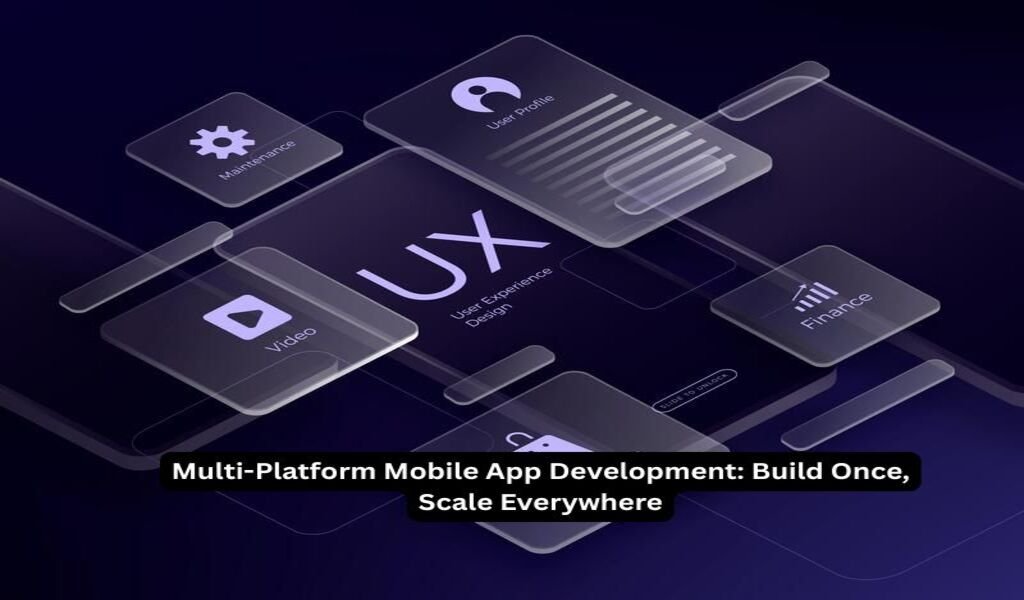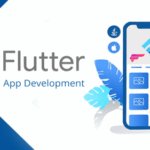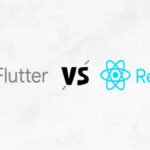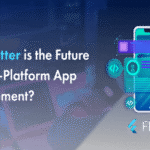Mobile App DevelopmentMulti-Platform Mobile App Development: Build Once, Scale Everywhere

Table of Contents
Introduction
Building apps separately for Android, iOS, and the web is expensive, time-consuming, and resource-heavy — especially for startups and SMEs. Fortunately, multi-platform mobile app development has changed the game.
With modern frameworks like Flutter and React Native, businesses can now build once and deploy everywhere — across mobile, tablet, desktop, and web — with a single codebase.
In this guide, we’ll break down how multi-platform mobile app development works, when to use it, which frameworks to choose, and how to scale without sacrificing user experience or performance.
What is Multi-Platform App Development?
Multi-platform app development (also called cross-platform app development) refers to building a single codebase that runs on multiple platforms — typically Android, iOS, web, and desktop.
Instead of writing and maintaining separate codebases for each platform, developers use tools like:
Flutter (by Google)
React Native (by Meta)
Xamarin
Kotlin Multiplatform
This unified approach reduces development time, cost, and technical debt, while allowing your business to reach users across devices without compromising quality.
Why Businesses Are Switching to Multi-Platform Strategy
- Whether you’re building a customer-facing app or an internal dashboard, here’s why businesses are moving to multi-platform:
Lower Costs
- One codebase means fewer developers, less QA time, and lower ongoing maintenance costs.
Faster Time to Market
Simultaneously launch your product on Android, iOS, and web.
Consistent UX Across Devices
- Maintain design and performance consistency across screens, enhancing user trust.
Easier Updates & Bug Fixes
Fix once, deploy everywhere — instead of patching each platform separately.
If you’re planning a product rollout across platforms, working with a mobile app development company in Chennai helps you balance speed, scalability, and cost-effectiveness in your multi-platform journey.
Benefits of Building Apps Once and Scaling Everywhere
Let’s go deeper into the advantages:
| Benefit | Description |
|---|---|
| Unified Codebase | Easier collaboration, better version control |
| Reduced QA Overhead | Test once for most UI and logic paths |
| Improved Developer Velocity | Reuse components, libraries, and modules |
| Better ROI | Stretch your budget across multiple touchpoints |
| Scalable Architecture | Easy to add features without duplicating work |
Best Frameworks for Cross-Platform Development in 2025
1. Flutter
Maintained by Google
Native performance with rich UI
Ideal for apps needing custom animations and smooth transitions
Supports Android, iOS, Web, macOS, Windows, Linux
2. React Native
Maintained by Meta (Facebook)
Huge community and plugin ecosystem
Better if you’re already using React for web
Strong native module support
3. Kotlin Multiplatform
Ideal for sharing business logic across platforms
Native UI for platform-specific needs
Enterprise-friendly with strong JetBrains support
Choosing the right framework depends on your use case. A AI software development company in Chennai can also help integrate AI features like chatbots, personalization, or analytics into these frameworks efficiently.
Use Cases That Are Ideal for Multi-Platform Development
E-commerce & Retail Apps
Build for Android and iOS + admin panel for web, all from the same stack.
Business & Utility Apps
Expense trackers, HR tools, logistics dashboards — these thrive on uniform UX.
Learning & EdTech Platforms
Launch across tablets, phones, and web for accessible learning.
Healthcare Apps
Allow patients to book appointments via app and view records on the web.
Travel & Booking Platforms
Keep booking flows and dashboards consistent across devices.
Case Study: Building a Unified App for Android, iOS, and Web
Client: Confidential (NDA signed)
Sector: Logistics + E-commerce
Problem: Android-only app couldn’t serve iOS users and admin team needed web access
Solution:Migrated to Flutter with responsive design
Integrated analytics and payment modules
Built a unified web portal using the same backend and UI patterns
Results:
3x user growth in 90 days
57% increase in orders via iOS
Single team managing all platforms, reducing monthly tech cost by 42%
Built and scaled by a Chennai-based multi-platform development team in 10 weeks.
Choosing the Right Development Partner in Chennai
Why Chennai?
Deep Flutter and React Native talent pool
Experience building enterprise-grade and startup-friendly apps
Affordable hourly rates and shorter delivery timelines
Ability to build + scale across Android, iOS, Web, Desktop
A trusted mobile app development company in Chennai will not only help you build cross-platform — they’ll help you think cross-platform from day one.
Enhancing Multi-Platform Apps with AI
Adding AI features to your multi-platform app unlocks even more value:
Chatbots
Add conversational support to your app and website with shared data context.
Personalized Recommendations
Offer dynamic home screens or product lists based on user behavior.
Smart Search & NLP
Enable voice-based and multilingual search within your app.
Computer Vision
Scan invoices, barcodes, documents, or objects — even on low-end devices.
An experienced AI development company in Chennai can ensure these AI features are seamlessly integrated into your cross-platform codebase.
Final Thoughts + CTA
Multi-platform mobile app development is no longer a compromise — it’s the smartest way to reach your users across devices without overextending your resources.
- Lower cost
- Faster launch
- Consistent UX
- Easier maintenance
- Native-like performance
Want to build once and scale everywhere?
Get a free consultation with our cross-platform experts in Chennai.
FAQs
1. Will my multi-platform app perform as well as a native app?
Yes. Frameworks like Flutter offer near-native performance and great UI on both Android and iOS.
2. Can I launch on web too from the same codebase?
Absolutely. Flutter and React Native support web deployment with some platform-specific adjustments.
3. What is the cost of multi-platform development in India?
₹5–12L depending on complexity and the number of modules (e.g., user app + admin panel).
4. How long does it take to build a multi-platform app?
Typically 6–12 weeks for MVPs and 3–5 months for feature-rich platforms.
5. Can I integrate AI into a multi-platform app?
Yes. AI models and services (chatbots, NLP, vision) can be integrated using shared APIs.




